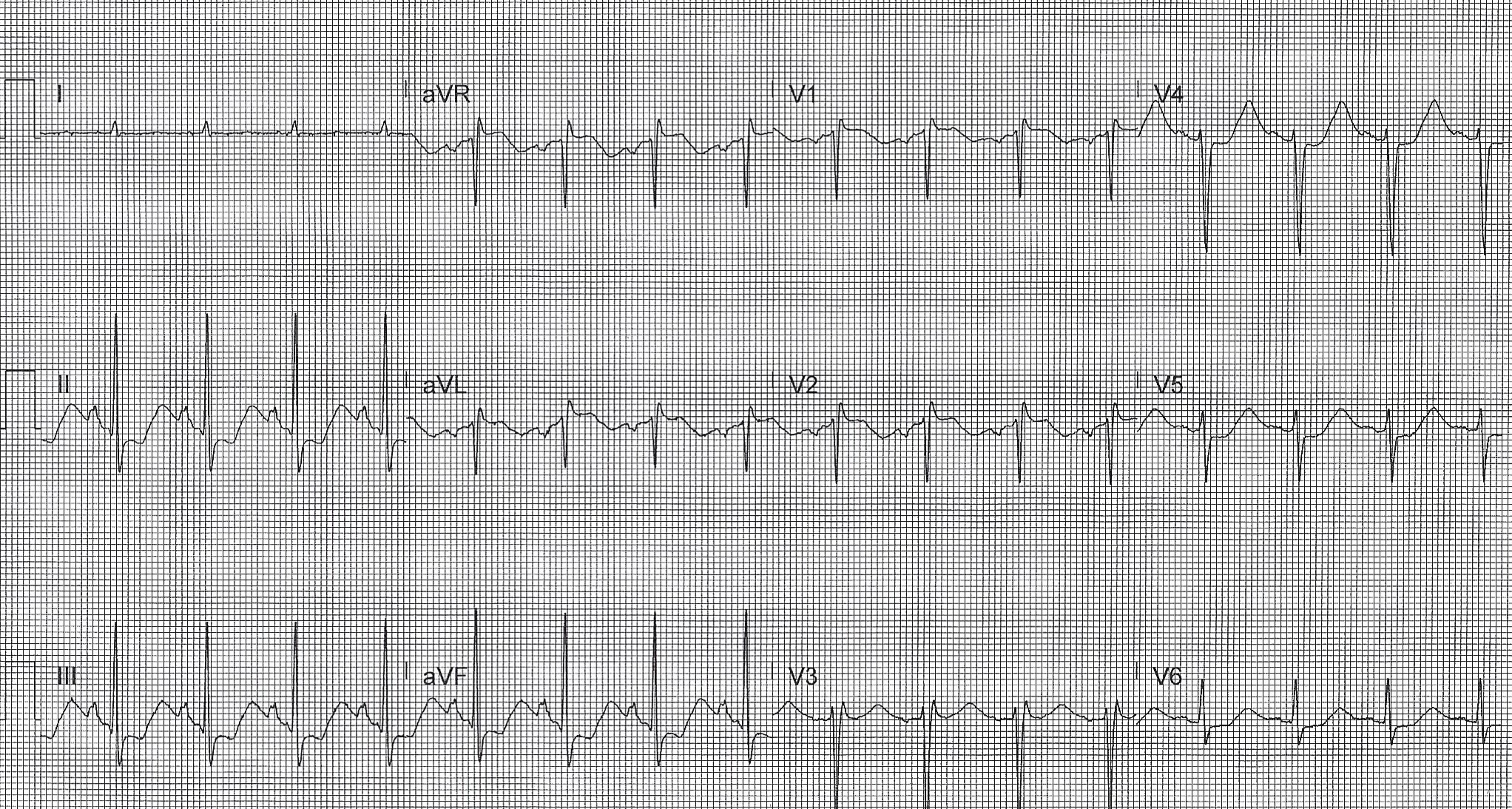History of Present Illness:
This is a 38-year-old male who presents with generalized weakness, lightheadedness, shortness of breath for the last 2 days, vomiting for 2 weeks with 20 pound weight loss. No diarrhea but is not keeping much down. No abdominal pain, chest pain or other pain. No fever or chills. Has a remote history of intestinal ulcer. No other complaints
Vital Signs & Physical Exam:
An ECG is done

Computer Read: NSR 96, marked ST depression consider subendocardial injury
What is the most likely cause of ECG findings in this patient?
- A) PE
- B) Electrolyte issue
- C) ACS
- D) PTX
SCROLL DOWN FOR THE EKG ANALYSIS & 1-MINUTE CONSULT
<<<<<<<<<<<<<<<<<<<<< ADVERTISEMENT & SPACER >>>>>>>>>>>>>>>>>>>>>
THE EMERGENCY MEDICINE POCKETBOOK TRIFECTA

Emergency Medicine 1-Minute Consult, 5th edition
A-to-Z EM Pharmacopoeia & Antibiotic Guide, NEW 5th edition
8-in-1 Emergency Department Quick Reference, NEW 5th edition
******************************************************************************
<<<<<<<<<<<<<<<<<<<<<<<<< END SPACER >>>>>>>>>>>>>>>>>>>>>>>>>
ECG interpretation:

): there is borderline tachycardia (rate >90 bpm), which is sinus as well ST depression followed by large broad T-U fusion waves. Ischemia is a possibility but this ECG along with the clinical picture is highly suspicious for severe hypokalemia (his K was 2.1), putting the patient at risk of fatal arrythmias, especially torsade de pointe. It is critical to avoid nausea medicines that could further prolong his QT interval such as Zofran, Reglan, Compazine or most agents. Benadryl, benzodiazepines or Decadron shouldn’t prolong the QT interval although Decadron could worsen the metabolic alkalosis. If this patient codes make sure to minimize epinephrine use and completely avoid bicarb as both decrease serum potassium levels. Bicarb should almost never be used in ACLS as it has been class III since 2010.
QUIZ ANSWER:
- A) PE
- B) Electrolyte issue – CORRECT. K was 2.2, bicarb 43, Mg normal, trop and Ddimer normal
- C) ACS
- D) PTX
1-Minute Consult on this topic: Click HERE and scroll to appropriate page
CASE CONCLUSION: Also had a microcytic anemia with MCV of 64 and Hb of 10.5. Potassium repleted. Sent home with GI and Renal follow-up
